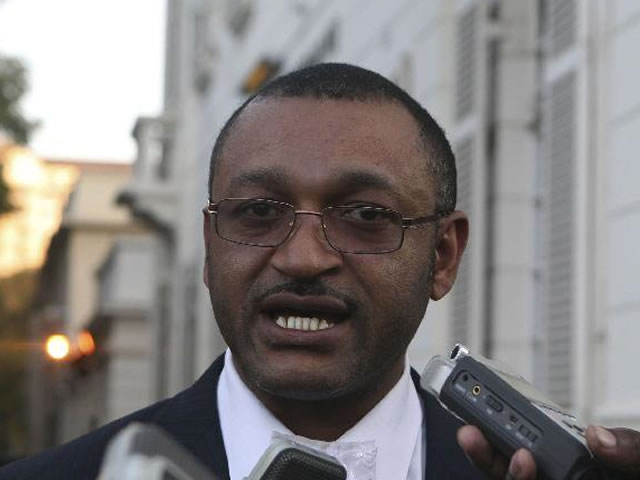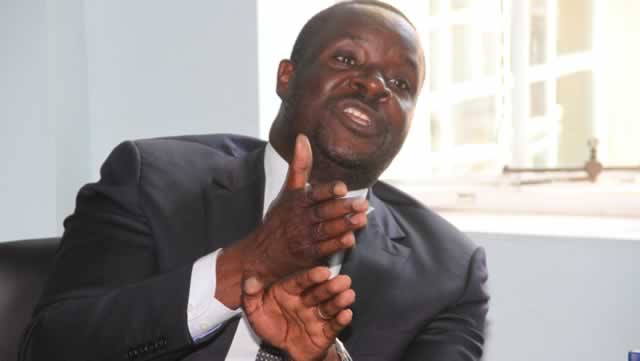Civil service pay dates announced

Felex Share in Harare and Pamela Shumba in Bulawayo
THE government’s negotiators yesterday met civil servants’ representatives and gave them specific January pay dates, with everyone being paid by the end of the month, and promised to soon give them firm dates when their 2015 bonuses will be paid.
Members of the Zimbabwe National Army will get their salaries on January 16, followed by those from the Zimbabwe Republic Police on January 20. Those in education will be paid on January 27, while the rest of the civil service will be paid on January 30 and pensioners will be paid on February 5.
Civil servants were doubtful if the government would pay them their salaries within the month after shifting the pay dates last month, a move that saw some getting their salaries on Tuesday, five days after the end of the month.
In yesterday’s meeting, the workers insisted they wanted actual dates when bonuses would be paid and a reversal of the 7,5 percent pension contribution being deducted from each worker’s salary every month.
The government negotiators lined up a number of meetings with the workers this month and said bonuses would be paid at dates to be announced soon after further consultations with the Ministry of Finance and the Civil Service Commission.
Acting Public Service, Labour and Social Welfare Minister Saviour Kasukuwere yesterday said the government would take the issues raised by the workers seriously.
“I can confirm the National Joint Negotiating Council, which brings together government and civil servants representatives met today and the report of the meeting will be relayed to the relevant government arms,” he said.
“Government assures the workers that whatever concern they raised will be addressed or explained to them and we hope there will be continuous engagement between both parties such that the workers will be clear on where we’re coming from, where we are and where we’re going.”
Apex Council president Richard Gundane said while the government had, for the umpteenth time, assured them that bonuses were coming, they needed actual dates to pacify the workers. “Their staggered principle in paying the bonuses will only be understood if there are dates,” he said. “We also told them that they should give us pay dates for all the coming months and should never repeat the system of paying salaries after Christmas Day. They should engage a gear of urgency and relay back their position soon and implement what we need. A number of meetings have been lined up to fill up the gaps.”
Gundane said the workers wanted the government to do away with the pension deductions.
“The meeting didn’t meet the workers’ expectations. We haven’t agreed anything with the government and we left the meeting with the same position that we took to the meeting.
“There was hardly any progress. We’ve challenged the government to expedite everything that they’re doing to address these issues and make sure that they update us on the progress they would’ve made,” said Gundane.
He said one of the expectations was that the government would announce the bonus dates but it was not ready to do so.
“It’s unfortunate that the government is still not in a position to announce the dates for the payment of bonuses. We had a very contentious issue on the 7, 5 percent deductions from the December salaries, which went towards pension. We made a strong submission that this should be reversed because it was implemented without consultation and that there’s no space on the disposable income of the workers to deduct not only this particular deduction but any other envisaged deduction that the government is contemplating on,” said Gundane.
“During the meeting, the government came up with its rhetoric of commitment to pay bonuses. Their explanation to come up with the 7, 5 percent deductions is based on the resuscitation of the old pension scheme. From the workers’ point of view this isn’t the business that we want to talk about because we’ve talked about these issues before and we’re at a point where commitment must be realised through implementation,” said Gundane.
The government started deducting the pension this month since 2009 when every civil servant was getting $100.
Despite the non-contribution, the government continued paying full pension benefits to workers on termination of employment before the situation became unsustainable as a huge back log of commutations accumulated.
“We simply want them to consider the deductions vis-à-vis the levels of income,” said College Lecturers Association of Zimbabwe president David Dzatsunga.
“The deductions mean government is progressively and unilaterally eating into the workers’ disposable income. It further takes us away from the poverty datum line salaries we’ve always clamoured for. It’s also clear that government is living from hand to mouth, but normally all pay dates should be known at the beginning of the year.”
Zimbabwe Rural Teachers Union president Martin Chaburumunda said they wanted “confidence in the system which would only come if the government honoured its pledges like paying the bonuses”.
The government is implementing a rationalisation exercise to cut its wage bill by more than $400 million annually by plugging unnecessary expenditure. As such, student teachers and trainees’ allowances have been reduced from $329 to $157, while salaries paid to teachers at trust and private schools by the state have been terminated. The government has also abolished all vacant posts and re-introduced bus fare for civil servants while funding of bridging courses has been scrapped.
Civil servants who were abusing various types of leave, tampering with pay sheets and attendance registers have been charged.











Comments